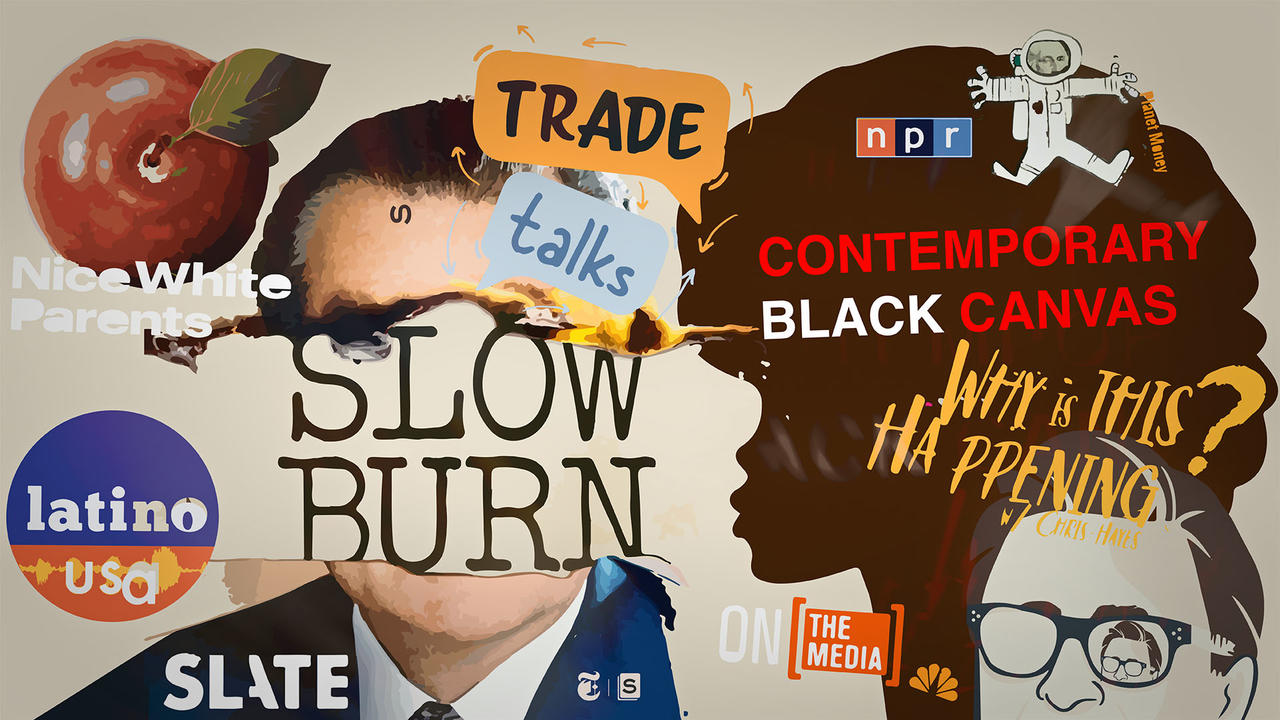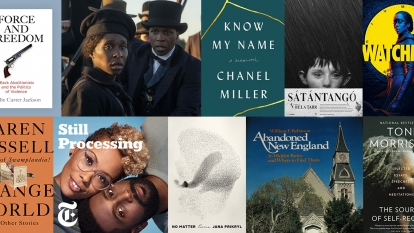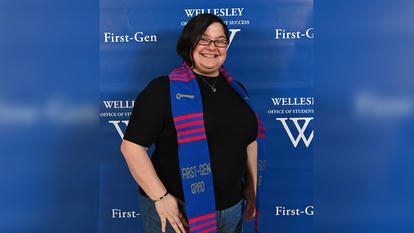Wellesley Faculty Share Their Favorite Podcasts

For those unfamiliar with the world of podcasts but interested in joining, it may be difficult to know where to start. From economics to education to journalism to politics—a lot of politics—it is easy to be overwhelmed by the options. Wellesley professors are here to help! Whether new to podcasts or simply looking for titles to add to your playlist, faculty have recommendations to share.
Ama Baafra Abeberese, assistant professor of economics
I am listening to Trade Talks. It provides an interesting mix of current trade policy discussions, historical context, recent research on trade, and also, at this moment, the implications of the pandemic for trade, and vice versa. There are some particularly interesting recent episodes: one titled “Vaccine economics, and why we need trade to end the pandemic” and another titled “Opportunities and setbacks for black workers in the 20th century.”
Oscar Fernandez, Class of 1966 associate professor of mathematics; faculty director, Pforzheimer Learning and Teaching Center
Every episode of NPR’s Planet Money explains aspects of the global economy in accessible ways. I also like the creative nonfiction structure of the episodes; it helps to make the podcast fun and engaging. It makes economics accessible to a broad audience. That is exactly what I aim to do when I teach math: make mathematics as accessible, engaging, and understandable as possible. So, I listen to Planet Money both to learn about the economics concepts their episodes break down so well, and also to learn from how they tell their stories, because good storytelling is just as important in teaching.
K.E. Goldschmitt, assistant professor of music
I binge-listened to the New York Times’ collaboration with Serial for Nice White Parents about the realities of how “well meaning” wealthy, white parents wreak havoc on public schools in New York (and other places). It was akin to witnessing a slow-moving disaster unfold in real-time. It led me to rethink who “integration” really serves in places like New York.
At the top of long-form reporting in podcast form is Slow Burn from Slate. The most recent season was all about David Duke’s near election as governor of Louisiana. The prior season was about the infamous feud between hip-hop stars Tupac Shakur and Biggie Smalls that led to their murders. As a popular music scholar, it was great to see how these journalists were connecting music to political rhetoric, including issues around policing and scapegoating.
And finally, I recommend LatinoUSA. A recent episode “Alzheimer's in Color” had me in tears as I was driving on I-95. I worry about vulnerable elders at this moment, and this episode really shined a light on the dangers of isolation for people who can so easily lose touch with the present due to illness.
Octavio González, assistant professor of English
One recommendation is by a dear friend of mine: Contemporary Black Canvas. It is a great resource to learn about contemporary Black American artists and poets/writers, as well as artists and writers of the Black diaspora. It introduces well-known and also less-well-known figures, including figures from the 1960s Black Arts movement, some of whom would be forgotten, if it weren't for Dr. Pia Deas' podcast. The podcast also helps undergraduate students learn skills, as the podcast is housed out of an HBCU, Lincoln University, Langston Hughes' alma mater, and the university where Dr. Deas is a tenured professor of English and African American Studies.
Josh Lambert, Sophia Moses Robison associate professor of Jewish studies and English
The podcast I’d recommend, to anyone who doesn’t already listen, is WNYC’s On the Media. Understanding American journalism, in all of its complexity, seems more difficult and more important now than ever (for all sorts of obvious reasons). Brooke Gladstone and Bob Garfield, and their staff of producers, do incredible, necessary work in decoding media controversies and holding journalists and media institutions accountable for their actions, and I especially love it when the hosts slip an untranslated Yiddishism into an interview (this past week, it was “shpilkes”). I've been listening for more than a decade, and I was excited to learn recently that on occasion their staff includes a Wellesley undergraduate intern.



